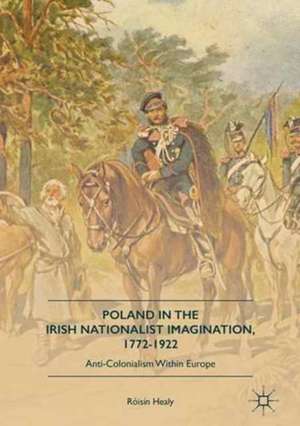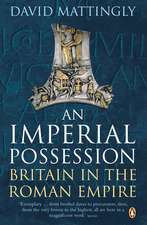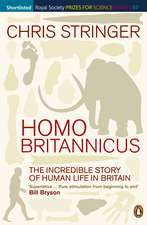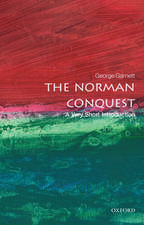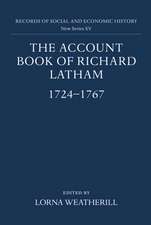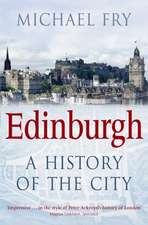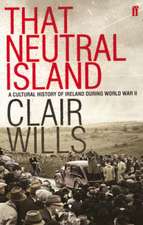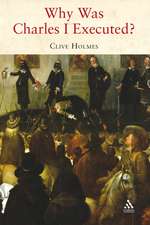Poland in the Irish Nationalist Imagination, 1772–1922: Anti-Colonialism within Europe
Autor Róisín Healyen Limba Engleză Hardback – 22 feb 2017
| Toate formatele și edițiile | Preț | Express |
|---|---|---|
| Paperback (1) | 634.14 lei 6-8 săpt. | |
| Springer International Publishing – 15 iul 2018 | 634.14 lei 6-8 săpt. | |
| Hardback (1) | 639.56 lei 6-8 săpt. | |
| Springer International Publishing – 22 feb 2017 | 639.56 lei 6-8 săpt. |
Preț: 639.56 lei
Preț vechi: 752.42 lei
-15% Nou
Puncte Express: 959
Preț estimativ în valută:
122.38€ • 127.77$ • 101.28£
122.38€ • 127.77$ • 101.28£
Carte tipărită la comandă
Livrare economică 04-18 aprilie
Preluare comenzi: 021 569.72.76
Specificații
ISBN-13: 9783319434308
ISBN-10: 3319434306
Pagini: 264
Ilustrații: XI, 321 p. 3 illus.
Dimensiuni: 148 x 210 x 19 mm
Greutate: 0.55 kg
Ediția:1st ed. 2017
Editura: Springer International Publishing
Colecția Palgrave Macmillan
Locul publicării:Cham, Switzerland
ISBN-10: 3319434306
Pagini: 264
Ilustrații: XI, 321 p. 3 illus.
Dimensiuni: 148 x 210 x 19 mm
Greutate: 0.55 kg
Ediția:1st ed. 2017
Editura: Springer International Publishing
Colecția Palgrave Macmillan
Locul publicării:Cham, Switzerland
Cuprins
List of Figures.- Acknowledgements.- Introduction: Poland and Anti-Colonialism.- 1. The Era of the Partitions, 1772-1798.- 2. From the United Irishmen Rebellion to the November Uprising in Poland, 1798-1832.- 3. The Repeal Movement and Young Ireland, 1832-1860.- 4. From the January Uprising to the First Home Rule Bill, 1860-1886.- 5. The Home Rule Bills and Minorities Policy, 1886-1914.- 6. Paths to Statehood, 1914-1922.- Conclusion.- Notes.- Bibliography.- Index.
Recenzii
“It brings together a treasure trove of archival discoveries and fascinating events … .Healy provides an accessible and indispensable starting-point for all future research on Ireland’s real and imaginary associations with Poland.” (Thomas Mclean, English Historical Review, 2018)
“In this book Róisín Healy looks behind the well-known political set pieces of the era to consider a fascinating and little studied phenomenon, Irish endorsement of the Polish political struggle for autonomy … . There are always intellectual benefits to veering off the main path and from this focused and impressive study we gain significantly in our understanding of the wider political identification of nationalist Ireland, how it understood the world and how it saw itself in that world.” (Maurice Earls, Dublin Review of Books, drb.ie, February, 2018)
“Written in a style which will engage both the specialist and non-specialist, Poland in the Irish Nationalist Imagination,1772–1922, is essential reading for anyone with an interest in Ireland’s relations with ‘New Europe’. Moreover, one hopes that it kick-starts new courses and research on Polish history at Irish universities, as well as inspiring Polish historians to further examine the issue of Ireland in the Polish nationalist imagination.” (Paul McNamara, Miscellanea Posttotalitariana Wratislaviensia, Issue 6, 2017)
Notă biografică
Róisín Healy is Lecturer in Modern European History at NUI Galway, Ireland. Her recent publications include The Shadow of Colonialism on Europe’s Modern Past (2014) and Small Nations and Colonial Peripheries in World War I (2016).
Textul de pe ultima copertă
This book explores the assertions made by Irish nationalists of a parallel between Ireland under British rule and Poland under Russian, Prussian and Austrian rule in the long nineteenth century. Poland loomed large in the Irish nationalist imagination, despite the low level of direct contact between Ireland and Poland up to the twenty-first century. Irish men and women took a keen interest in Poland and many believed that its experience mirrored that of Ireland. This view rested primarily on a historical coincidence—the loss of sovereignty suffered by Poland in the final partition of 1795 and by Ireland in the Act of Union of 1801, following unsuccessful rebellions. It also drew on a common commitment to Catholicism and a shared experience of religious persecution. This study shows how this parallel proved politically significant, allowing Irish nationalists to challenge the legitimacy of British rule in Ireland by arguing that British governments were hypocritical to condemn in Polandwhat they themselves practised in Ireland.
Caracteristici
Provides the first comprehensive account of Poland’s experiences and partitions impact on Irish Nationalism. Examines Ireland’s self-image as a victim of colonial rule and development of a foreign policy championing the rights of small nations. Examines a wider chronological period allowing for a deeper investigation of Irish Nationalism.
